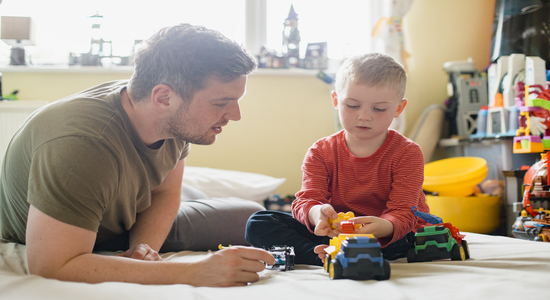When early childcare providers conduct home visits: A process evaluation of the implementation of VIPP-SD

How are evidence-based interventions best put into practice? Which factors are important for research-based parenting programs to work in the everyday lives of children, parents and childcare providers?
In this project, the implementation of VIPP-SD (Video feedback Intervention to Promote Positive Parenting) is evaluated in a Danish context where childcare providers conduct the parenting program, and a special focus is placed on the individual experiences of the parents and childcare providers who receive or conduct VIPP-SD in the families’ homes.
Aim
The purpose of the PhD project is to evaluate the implementation of VIPP-SD in a Danish childcare context, where early childcare providers conduct the parenting program in the families' homes.
The project is part of the randomized effect study “An Ounce of Prevention is Worth a Pound of Cure: A Randomized Controlled Trial of Pedagogues Promoting Positive Parenting in a Home-visiting Program in At-risk Families” (Danish title: “Hånd om trivslen”). VIPP-SD is an attachment-based early intervention program that promotes positive parenting behavior as well as the parents' ability to set the framework for everyday activities with their child in a sensitive and effective way.
The PhD project consists of a qualitative study of the parents’ and childcare providers’ experience of VIPP-SD and of the collaboration between parents / childcare providers, as well as the factors that contribute to or hinder the implementation and positive change in children and parents. In addition, the practical applicability, meaningfulness and feasibility of the program is evaluated.
Method
The qualitative part of the project consists of two studies, one focusing on the experiences of the parents and one focusing on the experiences of the childcare providers. In both groups, a minimum of 10 interviews are conducted. The last part of the project is a mixed-method study where questionnaires, observations of home visits and logbooks from the intervention program are used.
Contribution
The project is the first Danish study to evaluate the implementation of VIPP-SD in a Danish context. Within the field of intervention research, evaluation of implementation processes is typically an overlooked area. Thus, implementation researchers highlight a "gap" between science and service - between research and practice.
Preventive measures that are linked to day-care centers and carried out by childcare providers in Denmark have rarely involve home visits or home visit-based interventions. It is therefore unknown how an intervention such as VIPP-SD will be received and experienced by parents and childcare providers, and which factors that promote or hinder cooperation and positive development in the families. Thus, the project will contribute with knowledge about potential new areas of collaboration between childcare providers and families in cases where the child needs extra support to promote a positive development.
About the project
Project period: 1 February 2020 - 1 October 2024.
PhD student: Nina Marie Lassen, Cand.psych.
Supervisor: Mette Skovgaard Væver.
